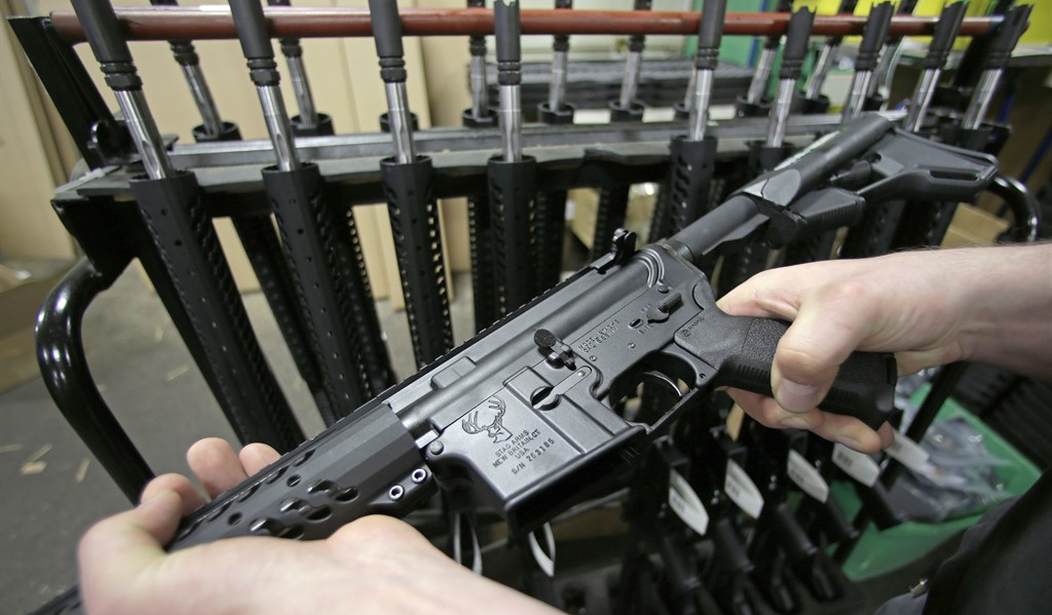How does one quantify how dangerous a firearm is? Is it by caliber? Rate of fire? Some superficial features that make it scary?
Well, in the state of California, it didn't matter. They decided to try and open up lawsuits against those who made "abnormally dangerous" firearms, as opposed to those who just make guns that are a regular amount of dangerous.
And in a move that surprises absolutely no one, a lawsuit challenging the law was filed.
In another move that shocks no one at all, the judge sided with the NSSF.
A federal judge on Wednesday blocked California's attorney general from enforcing a new law that allows residents, the state and local governments to sue members of the firearms industry that manufacture or sell "abnormally dangerous" guns.
U.S. District Judge Andrew Schopler in San Diego sided with a firearms industry trade association in finding that part of a gun control measure signed into law by Democratic Governor Gavin Newsom in 2022 was likely unconstitutional.
It is the first ruling in a case challenging the constitutionality of California's Firearm Industry Responsibility Act.
...
But in a lawsuit filed in May, the National Shooting Sports Foundation (NSSF) argued California's restrictions violated several provisions of the U.S. Constitution including the Second Amendment, which protects the right to keep and bear arms.
Schopler, an appointee of Democratic President Joe Biden, did not address the Second Amendment issue in Wednesday's ruling and instead found the law likely violated the Constitution's so-called dormant Commerce Clause, which restricts states from interfering with interstate commerce.
For example, he said, a Tennessee company that manufacturers guns that are legal in its state but that meet California's definition of "abnormally dangerous" could still face liability under the law even its products were shipped to nearby Arizona and used later to commit a crime in California.
"Because the 'abnormally dangerous' firearm rule reaches beyond California's borders and directly regulates out-of-state commercial transactions, it likely runs afoul of the dormant Commerce Clause," Schopler wrote.
He issued a preliminary injunction barring California Attorney General Rob Bonta, a Democrat, from suing NSSF's members while the lawsuit moves forward.
Honestly, this is an interesting ruling.
I get that Schopler didn't get into the Second Amendment aspects of it, but it's also interesting to see how this didn't really need the Second Amendment to be unconstitutional.
And his reasoning is absolutely correct. It does seek to restrict gun manufacturing and sales beyond the borders of California. It will punish companies for guns that are trafficked into California illegally, a matter that is completely beyond their control.
And that's a violation of the Commerce Clause.
However, I do wish Schopler had smacked down the idea of "abnormally dangerous" weapons as even a thing. For one thing, it's way too vague. I understand why it was written that way--because we Second Amendment types actually enjoy complying with the letter of the law while blatantly ignoring the spirit of it--but vague laws are incredibly problematic.
For example, is a Ruger 10/22 abnormally dangerous because it's semi-auto, or is a .50 BMG single-shot, bolt-action rifle abnormally dangerous because it shoots a really, really big round?
Literally no one knows how the term will be applied, which means literally any gun could potentially be declared as abnormally dangerous, meaning gun manufacturers would never really know what's acceptable in the state and what will open them to lawsuits.
Granted, if the Commerce Clause argument works, it's a moot point entirely, but still...








Join the conversation as a VIP Member